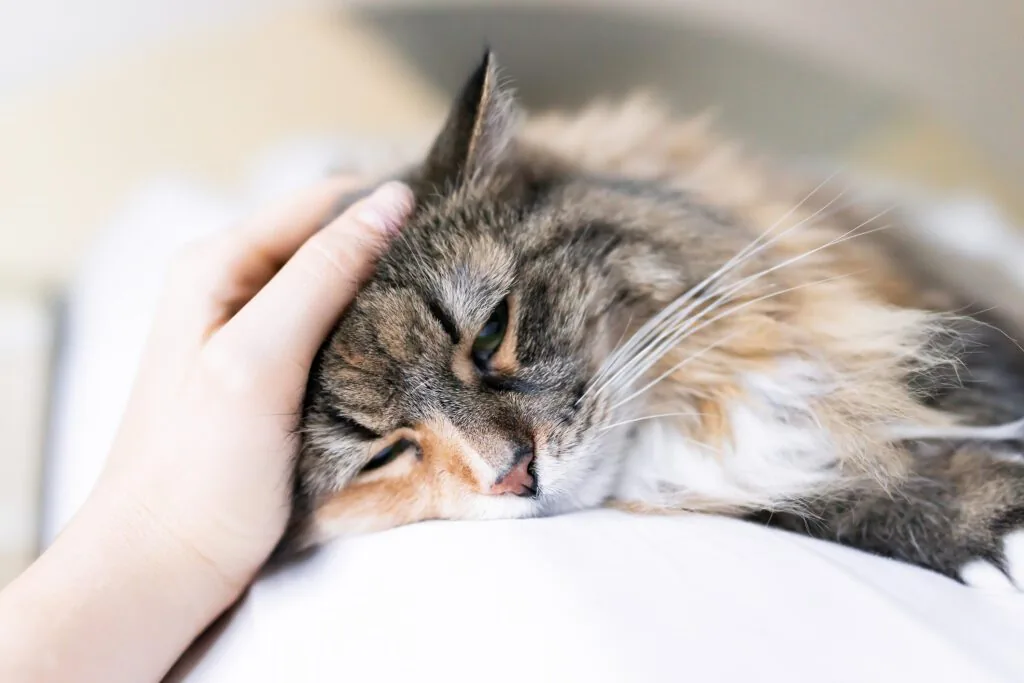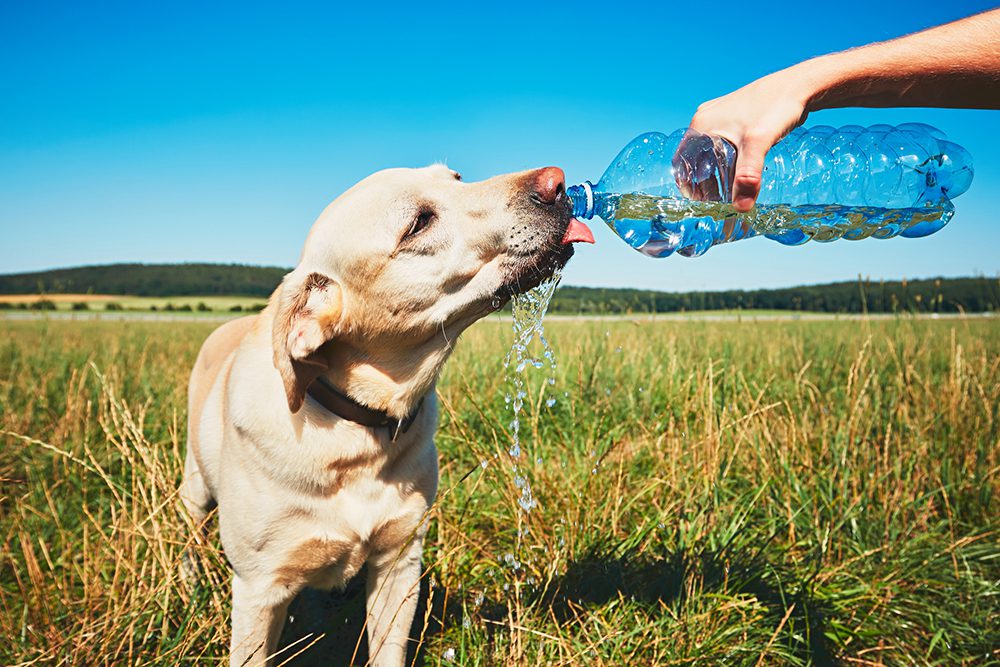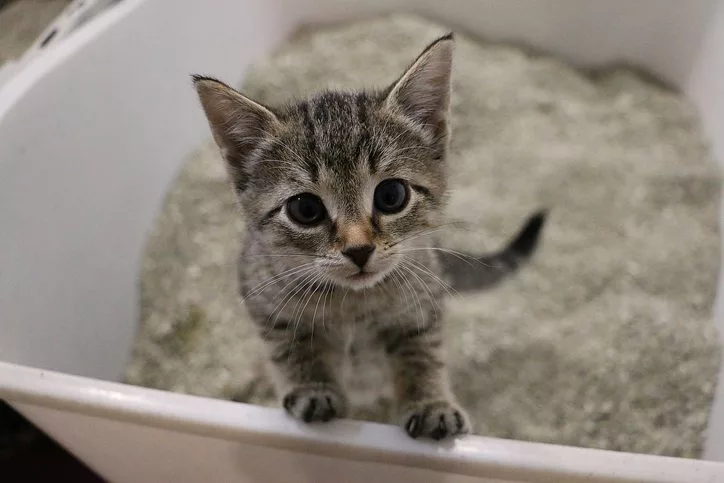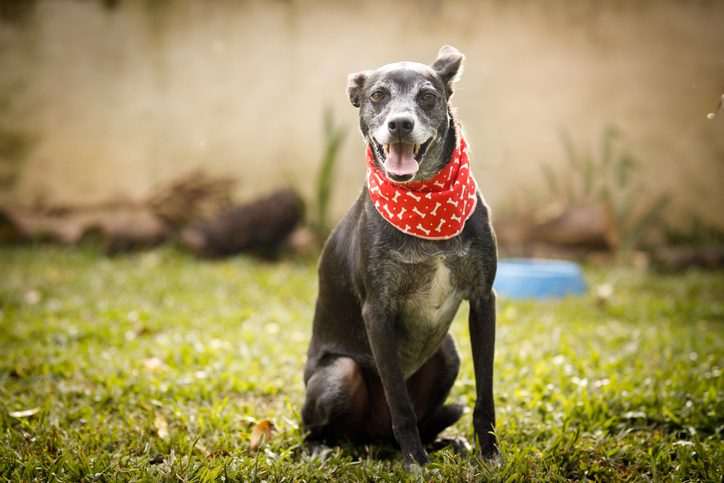Understanding Parvovirus: What Every Pet Owner Needs to Know

Parvovirus is one of the most serious — and preventable — diseases that can affect our furry friends. Your trusted veterinary team at Shepherd of the Hills Veterinary Clinic is here to help you understand what parvo is, how to recognize it, and most importantly, how to protect your pet from it.
What Is Parvo?
Parvovirus (commonly referred to as “parvo”) is a highly contagious and potentially deadly virus that primarily affects puppies and young dogs under one year of age. It targets the intestinal lining, making it impossible for the dog to absorb vital nutrients, fluids, and vitamins. As the intestinal lining deteriorates, bleeding into the intestines can occur, which is extremely painful and dangerous.
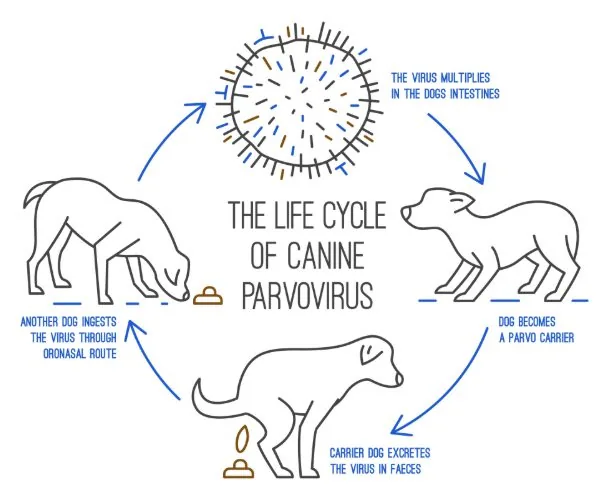
Although it mainly affects dogs, a similar form exists for cats (feline panleukopenia). Thankfully, each type of parvo is species-specific — humans cannot catch parvo from pets, and vice versa.
Who Is at Risk?
Parvovirus primarily affects:
- Puppies under 1 year of age
- Unvaccinated dogs and cats
- Senior pets or those with weakened immune systems
While all dogs are at risk, certain breeds such as Rottweilers, German Shepherds, and Pit Bulls are genetically more susceptible. Early and consistent vaccination is especially important for these breeds.
Symptoms of Parvo
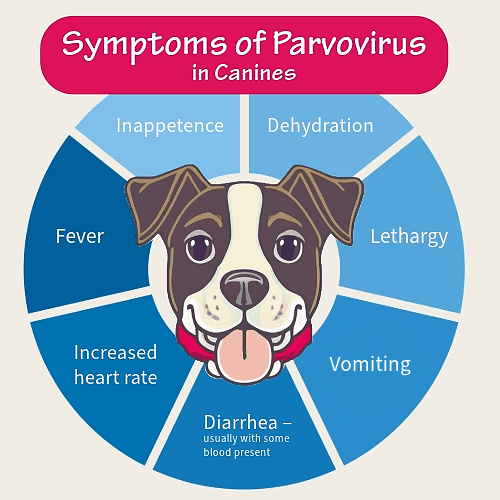
In Dogs (Canine Parvovirus):
- Severe vomiting
- Bloody or foul-smelling diarrhea
- Lethargy and weakness
- Dehydration
- Abdominal pain
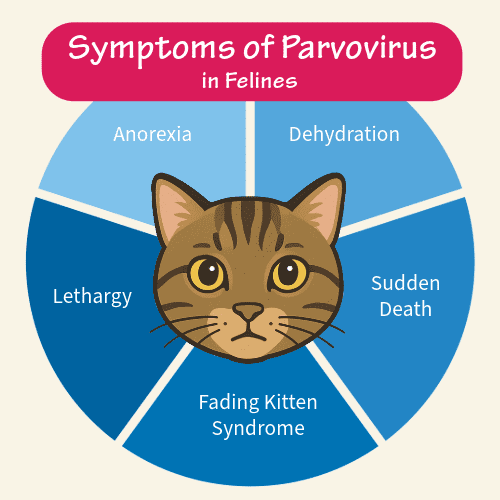
In Cats (Feline Parvovirus / Panleukopenia):
- “Fading Kitten Syndrome”
- Anorexia
- Lethargy
- Dehydration
- Sudden death (especially in kittens)
If your puppy or kitten shows any of these signs, contact your veterinarian immediately. Early intervention significantly increases the chance of survival.
How Can You Prevent Parvo?
Vaccination is the #1 prevention.
- Puppy and kitten vaccines start around 6 weeks of age, with boosters every 3-4 weeks until 16 weeks old.
- After the initial series, a booster is recommended every 3 years.
- Vaccines are 90% or more effective in preventing parvo. Even if a vaccinated pet gets sick, symptoms are often much milder.
- Vaccines typically cost $20–$50 each — far less than the thousands of dollars in treatment costs for an unvaccinated pet with parvo.
What If My Pet Has Parvo?
If your veterinarian suspects parvo, they may perform:
- Parvo test
- Fecal exam
- Bloodwork
- Imaging (X-rays)
If diagnosed with parvo:
- Your pet may require hospitalization in isolation, with IV fluids, antibiotics, and supportive care.
- Antibody injections are available for puppies, drastically increasing survival rates and reducing severity.
- Unfortunately, in kittens, feline parvovirus has a very high fatality rate — often as high as 90% within 24–48 hours, even with treatment.
My Pet Survived Parvo — Now What?
Survival is just the beginning. Parvovirus can live in the environment for up to 3 years, so thorough decontamination is crucial.
Decontamination Tips:
- Use Sniper disinfectant (Chlorine Dioxide) with 10-minute contact time to disinfect any area your pet touched — this includes floors, grass, bedding, furniture, toys, leashes, collars, and crates.
- Wash all fabrics in hot water with bleach.
- Pick up all waste and disinfect those areas thoroughly.
- Your clothes and shoes can spread the virus. Remove contaminated clothing before handling other pets and disinfect the bottom of your shoes before wearing outside the contamination area.
- For further detailed information on disinfecting parvo see https://canineparvovirus.org/
What Should I Do If I Suspect Parvo?
📞 Call your veterinarian immediately.
Do not walk into the clinic without calling first. Most veterinary hospitals have strict isolation protocols to protect other patients.
At our clinic, we’ll guide you through the steps to safely bring your pet in for evaluation. Following our instructions is crucial to prevent the spread of this dangerous virus.
The Bottom Line: Prevention Is Powerful
Vaccination is safe, effective, and affordable. If you’re unsure of your pet’s vaccine status — or if you know they’re unvaccinated — don’t wait. Get them vaccinated today and keep them away from potentially contaminated areas until they are fully protected.
If you have any questions, or if your puppy or kitten is showing symptoms of illness, call us right away at 417-337-7389. We’re here to help keep your pet healthy and protected!
Recent Posts
Pain in your Pet
As a veterinary professional, the most common fallacy owners hold about their animals is that their beloved…
Heat Exhaustion and Heat Stroke
Summer is and should be a time of outdoor fun and activities. Swimming, boating, fishing, hiking, camping,…
Why is my Cat Pooping Outside the Litterbox in Branson, MO?
If your cat has been pooping outside the litterbox, you’re probably feeling frustrated and worried at the…
6 Tips When Caring for a Senior Dog in Branson, MO
Taking care of a senior dog can be difficult for some pet owners. It’s hard to watch…
Is Dog Neutering in Branson, MO Necessary? 9 Reasons Why It Is
For dog parents, especially first-time dog parents, the decision to neuter your sweet little boy dog can…
About Shepherd of the Hills Veterinary Clinic
Founded in 2018 by Dr. Amanda McGinty, we are a full-service animal hospital with a passion for pets and a commitment to community. We offer high-quality, competitively-priced care for Branson-area cats, dogs, rabbits, and pocket pets. At Shepherd of the Hills Veterinary Clinic, we want to provide the best healthcare possible, so we are fully equipped with state-of-the-art imaging and laboratory testing. In addition to carrying the latest technology, we value education and best-in-class care. Therefore, we are Fear Free certified, and Dr. Amanda utilizes a holistic approach using up-to-date modern medicine in addition to herbal and alternative therapies.



